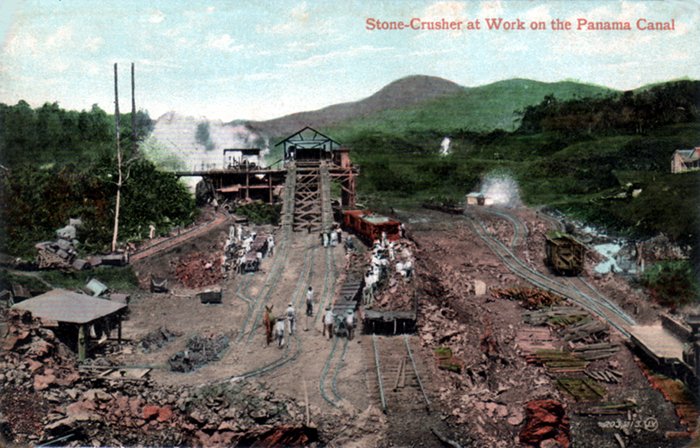Reagan, In His Own Hand
by Ronald Reagan
edited by Kiron K. Skinner,
Annelise Anderson,
& Martin Anderson
foreword by George P. Shultz
Free Press: New York, 2001
549 pages
Clear speaking to the people
During 1975-1979, between Ronald Reagan's completion of his years as Governor of California and his successful campaign for the American Presidency, he gave over a thousand radio addresses. What was known to very few people then or later was that he wrote almost all of these himself. They are capsule commentaries on events or more general position statements: each a few minutes' spoken time, usually two or three pages as printed in Reagan, In His Own Hand. In fact, many exist in his own handwritten drafts; a few examples are reproduced in this compilation ably edited by Kiron K. Skinner, Annelise Anderson, and Martin Anderson.
Reagan's writings represented here are divided into four general parts:
- Reagan's Philosophy
- Foreign Policy
- Domestic and Economic Policy
- Other Writings, 1925-1994
Some essays and letters also are included. There is helpful introductory material, a complete list of the radio speeches (by no means all are here), and a scattering of footnotes fleshing out then-current names and references. Since these items mostly are drafts for radio addresses rather than formalized essays, Reagan's abbreviations and strike-outs are shown, as he wrote them. The dates below are taping dates for radio addresses, otherwise composition dates.
Here's a line from one address, a timeless summary in a single sentence:
Power is not only sufficient military strength but a sound economy, a reliable energy supply and credibility — the belief by any potential enemy that you will not choose surrender as the way to maintain peace."Peace", April 1975
Straight and clear.
Jimmy Carter was President when most of these radio addresses were given. Was this a practical approach for private citizen Ronald Reagan? Most definitely. He honed his philosophy on contemporary events which were worrying Americans — or should have been worrying them; worked out his ideas in his own words; and spoke directly to the American people. This latter is not to be slighted: Reagan put these points across directly in clear language composed by himself, uncensored by media arbiters, unfiltered by talking heads with their sound-bites.
Our equivalent today of these radio addresses — in political philosophy, topical commentary, and unfiltered directness — is Sarah Palin's Facebook Notes.
Giving away the Panama Canal
Of all the wrongful actions of the Carter Administration, perhaps the simplest and most obviously bad for America (I do not call it a "blunder") is the giving away of the Canal Zone and the American-built Panama Canal.
This was an inexcusable action by President Jimmy Carter.
Postcard, circa 1910:
Stone-Crusher at Work on the Panama Canal
The Canal project's hydraulic rock crushers were built by
Joshua Hendy Iron Works,
Sunnyvale, California
Reagan devotes a number of radio broadcasts to this important topic:
- "Panama", 15 August 1977
- "L.A. Times", 6 September 1977
- "Panama Canal I", 6 September 1977
- "Panama Canal II", 6 September 1977
- "Panama I", 18 October 1977
- "Panama II", 18 October 1977
- "Canal", 3 April 1978
- "Guantanamo II", 7 August 1978
- "Panama", 27 March 1979
It is difficult to imagine any pro-American reasons for Carter's giveaway, short of some concoction by "permanent residents of a unicorn ranch in fantasy land" (to borrow Sarah Palin's phrase). For a perfect example of the destructive Carter foreign policy, I particularly urge you to read this handful of Reagan's addresses.
Many of the issues discussed are not-too-distant antecedents of problems and issues today: Communism; the Constitution, the Electoral College, voter verification; the Middle East; land use; oil and nuclear energy; Social Security and pensions; schools, academic freedom, and educational follies; even the Weathermen bombings; and lots more.
Some items in Reagan, In His Own Hand are more personal, including some very early literary efforts; some more or less autobiographical, including about Hollywood and the movies. In fact, the violent Communist attempt to take over the Hollywood unions in the late 1940s, was to a considerable degree powered by Reagan's commitment, eloquence, and leadership. There even is some literary criticism: Wordsworth, Biblical translation.
While I read these straight through, you may wish to concentrate on some areas of particular interest. If you do so, however, I suggest that you dip into the others to see the breadth of Reagan's thinking, and appreciate his ability to convey important points across a wide range of issues important to America.
If you know Ronald Reagan's voice from speeches or recordings, you may be able to able to hear his voice with your mental ear as you read. Sometimes his charm, wit, and critique come together in a single line:
You know giving up the canal itself might be a better deal if we could throw in the state dept.
This is RR Thanks for listening.
"Canal", 3 April 1978
© 2011 Robert Wilfred Franson
R. W. Franson's reviews of
Reagan's Revolution
[the 1976 nomination campaign]
by Craig Shirley
— and —
Rendezvous with Destiny
[Reagan and the 1980 Presidential campaigns]
by Craig Shirley
Constitution at Troynovant
American founding documents,
Declaration of Independence
& U.S. Constitution
Utopias at Troynovant
utopia in power, or dystopia
| Troynovant, or Renewing Troy: | New | Contents | |||
| recurrent inspiration | Recent Updates | |||
|
www.Troynovant.com |
||||
|
Reviews |
||||
| Strata | Regions | Personae |
|
|||
